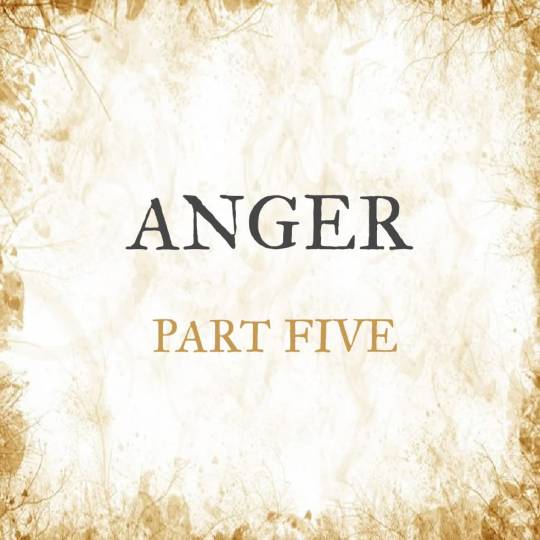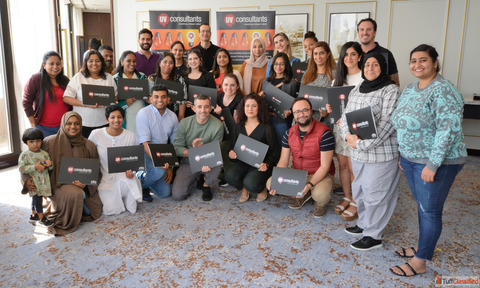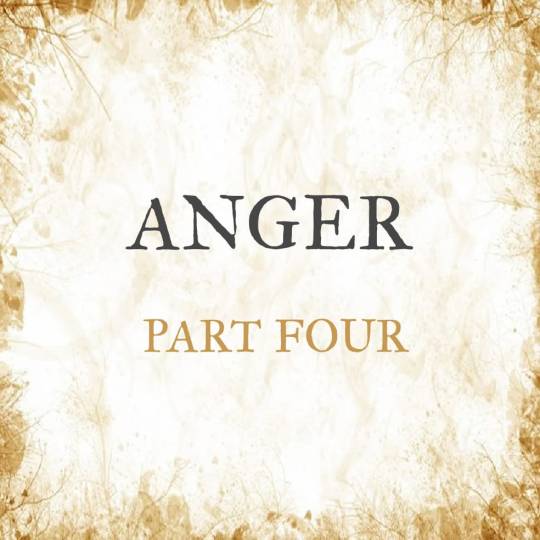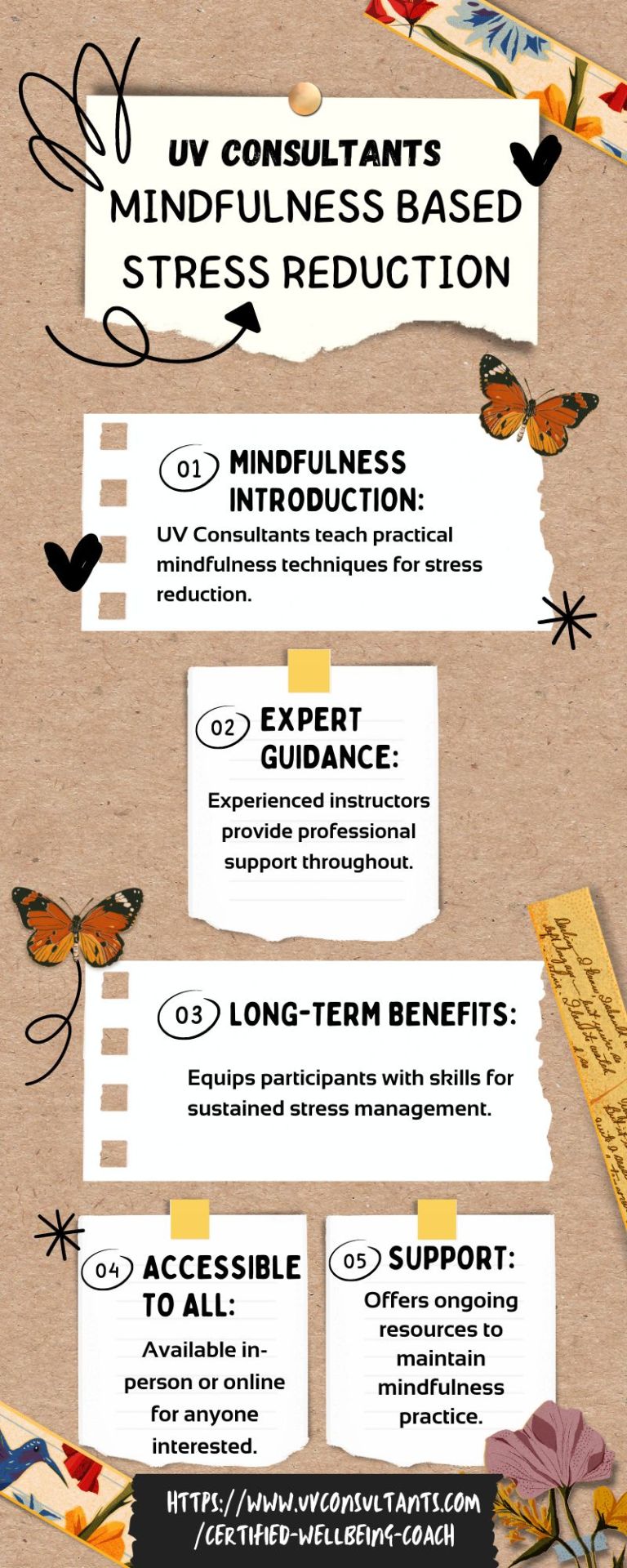#mindfulness-based stress reduction
Text
#marriage counseling#biofeedback#cognitive behavioral therapy#acceptance and commitment therapy#chronic pain management#mindfulness-based stress reduction
0 notes
Text
How does one identify and change negative thought patterns that contribute to stress?
Negative thoughts can often contribute to stress and anxiety. If you find yourself experiencing negative thoughts regularly, it is essential to learn how to identify and change them to manage your stress effectively.
Continue reading Untitled

View On WordPress
#cognitive restructuring#cognitive-behavioral therapy#gratitude#journaling#meditation#mindfulness#mindfulness-based stress reduction#negative thought patterns#positive affirmations#relaxation techniques#self-awareness#self-talk#stress reduction techniques#therapy
0 notes
Text
Seven 'Ps' to 'Terminator' anger. - Part Five - Grounding
When angry I am in a different space. Earth to Me! Practice Grounding! #mentalhealth
Previously: Part One – Seven Ps to cope; Part Two – Four Ps to prepare; Part Three – Pause; Part Four – Breathe.
Earth to Me – Out-of-body experience!
Photo by NASA on Unsplash
We are often lost in our thoughts and emotions when angry. In a way, this is a flight from reality. Strong emotions have a physiological impact and intensify the feeling. But we rarely notice this since we are in the…

View On WordPress
#anger is momentary madness#anger management#coping strategies#Grounding exercises#Mindfulness-based stress reduction#Name five things you can see#Name four things you can hear#Name one thing you can taste#Name three things you can touch#Name two things you can smell#psychological stress
0 notes
Text
Mindfulness Based Stress Reduction
With a focus on Mindfulness-Based Stress Reduction training, UV Consultants provides customized solutions to foster resilience and overall wellbeing. Our skilled instructors lead people and groups through research-proven techniques to reduce stress, improve concentration, and promote a healthy lifestyle. Learn practical strategies to overcome obstacles and succeed in both your personal and professional life with our MBSR training. For more information, visit: https://www.uvconsultants.com/certified-wellbeing-coach

0 notes
Text
Who is Tara Brach?
Tara Brach is a well-known American psychologist, author, and meditation teacher. She is particularly recognized for her work in the field of mindfulness meditation and Buddhist teachings. Tara Brach integrates psychological insights with Eastern spiritual practices to help individuals cultivate mindfulness, compassion, and self-awareness.
Key points about Tara Brach:
Background: Tara Brach…
View On WordPress
#Buddhism#Certainly#Clinical Psychology#Compassion#Eastern Philosophy#Guided Meditations#Healing#here are the keywords with commas after each one: Tara Brach#Insight Meditation#Insight Meditation Community#Meditation#Mindful Living#Mindfulness#Mindfulness-Based Stress Reduction (MBSR)#Podcast#Psychologist#Radical Acceptance#Self-awareness#Self-compassion#Transformation#True Refuge
0 notes
Text
youtube
How to practice Mindfulness | Walt Hampton
Mindfulness is a practice that involves focusing one's attention on the present moment and accepting it without judgment. It is derived from Buddhist traditions and has gained popularity in recent years due to its numerous mental and physical health benefits.
#how to practice mindfullness#meditazione mindfulness#mindfulness meditation#benefits of mindfullness#mindfullness#mindfullness meditation#mindfullness therapy#mindfullness practice#mindfullness retreat#mindfullness based stress reduction#practice Mindfulness#mindfull eating#mindfullness training#mindfullness based cognitive therapy#mindfullness coaching#mindfull self compassion#Walt Hampton#mindfulness for kids#mindfull minute#mindfulness#Youtube
0 notes
Text
" . . .how we perceive a problem, and by extension how we perceive the world and also ourselves, can have a profound influence over what we are capable of doing and how much we are capable of loving. Seeing with eyes of wholeness means recognizing that nothing occurs in isolation, that problems need to be seen within the context of whole systems. Seeing in this way, we can perceive the intrinsic web of interconnectedness underlying our experience and merge with it. Seeing in this way is healing. It helps us to acknowledge the ways in which we are extraordinary and miraculous, without losing sight of the ways in which we are simultaneously nothing special, just part of a larger whole unfolding, waves on the sea, rising up and falling back in brief moments we call life spans."
Full Catastrophe Living - Using the Wisdom of Your Body and Mind to Face Stress, Pain, and illness
by Jon Kabat-Zinn
0 notes
Text
Mindfulness based stress reduction
Best individual anxiety treatment center offers individual anxiety treatment and trauma therapy for stress reduction, PTSD, trauma, depression and anxiety treatment in San Diego. Call Today for mindfulness based stress reduction!
0 notes
Text
Mindfulness Based Stress Reduction Training
Stress is a problem that may disturb your life. There are different symptoms that are the clear indications like difficulty breathing, panic attacks, blurred eye sights or sore eyes, sleep problems, fatigue, muscle aches and headaches, chest pains and high blood pressure, and in some cases indigestion or heartburn. The most crucial thing is to look for the right treatment options. In some cases, paying attention to mindfulness based stress reduction training will be beneficial in a number of ways.
If you focus on this type of training, you will get a number of added benefits. The most crucial thing is to search for the right training center, where mindfulness training sessions are arranged. Go online and it will be an ideal way to save you time and money. Check all details, and get the right solutions. There are a number of big names in this domain offering you the right solutions. You can contact from anywhere and anytime and get the right solutions.
Among some of the top and trained psychotherapists, you will find name of Mary Ann Rege the right and professional one. She is also EMDR Certified Therapist who provides you with the best treatment options and recommending you different therapies like mindfulness based relapse prevention training like mindfulness stress reduction training. You have to schedule an appointment according to your requirement, go through the details, and make a contact.
0 notes
Note
Okay so I recently saw a reblog to Jedi Apologists refutation of the Jedi being a cult which talked about mindfulness as a bad thing with it’s emphasis on self compassion leading to narcissism (I’m paraphrasing). Anyway, this really didn’t sound right from everything I’ve read about it on various pro-Jedi blogs and have taken away from Star Wars itself. And we’ll when I looked up mindfulness some of the stuff I’ve found went into how the practice has been corrupted by Western capitalism and how Buddhists have criticised the way it’s used too.
So as a practising Buddhist how does Western mindfulness deviate from its Buddhist roots and how do the Jedi use mindfulness in the truest sense?
First of all, people have a tendency to forgot or to actively ignore that there is a difference between these four:
Mindfulness
Meditation
Mindfulness meditation
Being mindful of your emotions
Mindfulness in Buddhism
Mindfulness in Buddhism can be defined as maintaining a flow of voluntarily awareness or attention, holding, bearing something in mind, without distraction, without forgetfulness. This awareness, attention is non-judgmental, not filtering things through subjective opinions, or labeling things as good and bad based on like or dislike. But it entails you to have a clear view of what's happening in your mind, body, and environment, and you can recognize which ways of speaking, behaving and using the mind is conducive to your and to other's well-being, which are afflictive, toxic, harmful to you and to others, and you can do the sensible, compassionate thing.
Buddhist Mindfulness and Western Psychology - mindfulness versus meditation
In the context of Western psychology, "mindfulness" often refers to mindfulness practices incorporated into the Western therapeutic toolkit, most often mindfulness meditation. However, one must understand that even as all forms of Buddhist meditation involve mindfulness, mindfulness is not the same as meditation and not all types of mediation is mindfulness meditation. The Buddha taught his followers to practice mindfulness all the time. It should be clear that one can make Buddhist mindfulness a day-to-day activity, but it would be very difficult to stay in the state of mindfulness as it is defined in Western psychological context.
Mindfulness in the Western context is becoming more fully aware of the present moment and becoming more fully in the present moment, completely and non-judgmentally. It generally involves heightened awareness of sensory stimuli, e.g. noticing your breathing, feeling the sensations of your body, being in the “now.”
Buddhists define meditation as a tool used to habituate yourself to constructive, realistic and beneficial emotions and attitudes, to build up good habits of the mind. It's used to transform thoughts and views so that they are more compassionate and correspond to reality. Some forms of meditation are aimed to develop mindfulness. Whereas in the Western context, meditation is often defined as a set of techniques that are intended to encourage a heightened state of awareness and focused attention.
Therapies incorporating mindfulness practices include: Acceptance and commitment therapy (ACT), Dialectical behavior therapy (DBT), Mindfulness-based cognitive therapy (MBCT), Mindfulness-based art therapy (MBAT), Mindfulness-based pain management (MBPM) and Mindfulness-based stress reduction (MSBR).
The Jedi way: "Be mindful of your emotions"
The Jedi way of being mindful of your emotions in George Lucas' Star Wars is to hold your emotions in calm, non-reactive ("passive") and peaceful awareness. When you do that, you can realize: you are not your emotions. You are not your fear; you are not your anger; you are not your aggression; you are not your hate. They're arising within you, and when you're not mindful of them, you are pulled by them to places where you didn't really want to go. However, when one is mindful of their emotions, instead of being carried by them, one can recognize where fear, anger, hate, aggressive feelings are leading them, and can choose the light path over the dark path: to act with firmness, spacious clarity and compassion.
This kind of mindfulness practiced by the Jedi, the Jedi teachings of "be mindful of your emotions", "be mindful of your thoughts" and that one's mind should be where one is, in what they're doing, are very much identical to Buddhist mindfulness. But it should be noted that even though many Jedi - Qui-Gon, Yoda, the whole council, etc. - and even Jar Jar were meditating, this doesn't mean that they attempted to incorporate meditation into a therapeutic toolkit.
Western pop-culture mindfulness
The Western pop-culture mindfulness is to immerse yourself into the present moment, focusing your full and undivided attention to your experiences, whether it's within you or around you. It lacks the aim to discern what is conducive to your and to other's well-being, and it's just experiencing passively. Most worryingly, it's promoted as a way to increase the pleasures you receive from the present. Eat mindfully, get a massage mindfully, walk mindfully, have sex mindfully etc. And this is profoundly non-Buddhist, because it's all about squeezing out more intense and more lasting pleasure of the things that are coming and passing. When "mindfulness practice" is removed from other Buddhist teachings, guiding us to release our greed, anger, to develop empathy, kindness and compassion, and non-attachment, "mindfulness" could reinforce negative qualities. For example, if one fails to differentiate between self-compassion and self-indulgence, self-care and self-centeredness, they likely conclude that their narcissistic tendencies are self-compassion.
Most worryingly, mindfulness is conflated with mediation and is marketed as some kind of relaxation exercise or stress-reduction technique. But mediation was designed to gain insight and wisdom, not to relax. Also, it's popular to treat it as a tool or as a magical remedy for psychological healing, whereas it wasn't designed to be anything like that. It can powerfully support therapeutic processes, but one must know that Buddhist practice is not a substitute for, say, psychotherapy. And when pop-culture mindfulness fails to deliver, people often believe, what they did to themselves was Buddhism and mindfulness, whereas that wasn't Buddhism or mindfulness at all.
204 notes
·
View notes
Text
Psychological Therapy for Chronic Pain In Brantford
Chronic pain affects millions of people worldwide, and it can significantly impact an individual's quality of life. The constant pain and discomfort can make it challenging to perform everyday tasks or even engage in enjoyable activities, leading to feelings of frustration and despair. While medication and other medical treatments can provide some relief, psychological therapy can also be an effective treatment option for chronic pain.
#Chronic Pain Management#Cognitive Behavioral Therapy#Mindfulness-Based Stress Reduction#Pain Coping Skills Training#Acceptance and Commitment Therapy#Pain Education#Relaxation Techniques#Biofeedback#Hypnotherapy#Graded Motor Imagery.
0 notes
Text
I wore my new Loop earplugs to the loud and noisy restaurant. I struggle to hear what’s being said when there’s a lot of background noise, so I treated myself to these earplugs to see if it made social outings less exhausting and stressful. This was my first outing with them.
They made everything sound a bit muffled, including my own voice, but I quickly got used to that. And my friends kept saying “pardon” and “what did you say?” to each other, while I could hear everything that was said. I have funny shaped ear canals and regular headphones don’t stay in well, so I can’t say these were super comfy but they were tolerable and maybe I will get used to them. I did swap the bit that fits in my ear canal for the smallest size.
Halfway through the evening I took them out to see if they really were making a difference, and WOAH the restaurant was SO LOUD, never mind whether I could hear what my friends were saying, I think my brain would have just exploded with that level of noise. And then I couldn’t hear my friends so well either.
So overall verdict on Loop earplugs based on my first experience with them - I felt like they made a difference and were helpful. (They were Loop engage btw, I also have the mutes to put in for an extra 5dB noise reduction but I’m starting out just in basic mode)
69 notes
·
View notes
Text
Seven 'Ps' to 'Terminator' anger. - Part Four.
When angry, engaging in breathing exercises before the person concerned may freak them out and diffuse the situation. But it is better to do it when alone. #mentalhealth
PLEASE BREATHE.
Previously: Part One – Seven Ps to cope; Part Two – Four Ps to prepare; Part Three – Pause
We may have distanced ourselves from the situation triggering our anger, or we may still be face-to-face with the stimulus. No matter what, we must now breathe and relax.
Credit Emerson Peters on Unsplash
It is common for children sometimes to hold their breath and tense their bodies…

View On WordPress
#anger is momentary madness#anger management#Defense Mechanisms#Emotional Intelligence#Mindfulness-based stress reduction#Progressive muscle relaxation#psychological stress#Relaxation techniques#releasing pent-up emotions#Ruakh#smell the flowers blow the candles
0 notes
Text
Mindfulness Based Stress Reduction
UV Consultants deliver Mindfulness-Based Stress Reduction programs, offering practical techniques for stress reduction. Tailored to individual needs, their evidence-based approach ensures effectiveness. Emphasizing holistic well-being, programs promote long-term mental and physical health benefits. Accessible to all, whether in-person or online, with ongoing support for sustained mindfulness practices.
To know more:- https://www.uvconsultants.com/certified-wellbeing-coach

Mindfulness Based Stress Reduction
0 notes
Text
Top 11 Habits For a Healthy Lifestyle
Hydrate Smart: Drink plenty of water throughout the day. Aim for 7-8 glasses, but adjust based on activity level and climate. Proper hydration keeps your body functioning optimally, improves cognitive function, and aids digestion.
2. Nourish Your Body: Focus on whole, unprocessed foods like fruits, vegetables, and whole grains. Include lean protein sources for sustained energy. This dietary foundation provides essential nutrients for overall health and well-being.
3. Move It or Lose It: Aim for at least 30 minutes of moderate-intensity exercise most days of the week. Find activities you enjoy, like dancing, swimming, biking, or brisk walking. Regular exercise improves cardiovascular health, strengthens muscles and bones, and boosts mood.
4. Strength Matters: Incorporate strength training exercises 2-3 times a week. Building muscle mass increases metabolism, helping you burn more calories at rest. Stronger muscles also improve posture and functional movement.
5. Sleep for Success: Strive for 7-8 hours of quality sleep each night. Establish a regular sleep schedule and stick to it, even on weekends. Adequate sleep is crucial for physical and mental rejuvenation, improving focus, memory, and emotional well-being.
6. Mindful Munching: Eat slowly and savor your food. Pay attention to hunger cues and avoid mindless overeating. This practice allows you to feel satisfied with less food and prevents overindulgence.
7. Digital Detox: Schedule screen-free time before bed. The blue light emitted by electronic devices can disrupt sleep patterns. Winding down with relaxing activities helps you fall asleep faster and sleep more soundly.
8. Stress Less, Live More: Practice stress-reduction techniques like deep breathing exercises, meditation, or mindfulness. Chronic stress can negatively impact your physical and mental health. Manage stress to improve overall well-being.
9. Connect and Belong: Build strong social connections with supportive friends and family. Spend quality time with loved ones. Social interaction provides a sense of belonging, reduces stress, and improves mental well-being.
10. Fuel Your Mind: Engage in activities that stimulate your mind. Learn a new skill, read stimulating books, or challenge yourself with puzzles. Mental stimulation keeps your mind sharp and improves cognitive function.
11. Preventive Care is Key: Schedule regular checkups with your doctor and dentist. Early detection and prevention of health issues are crucial for maintaining good health and well-being.
if you want learn how to building healthy habits 101 take this ebook
#mental health#self reflection#be yourself#self improvement#self help#new life#letting go#inspirational quotes#new beginnings#positivity#therapy#self therapy#survival#affirmations#manifesation#study blog#2024 goals#2024#2024 planner#clean girl#it girl#pinterest girl#girlblogging#this is a girlblog#that girl energy#becoming that girl#healthy eating#healthy lifestyle#health and wellness#wellness girl
14 notes
·
View notes
Text
youtube
How to practice Mindfulness | Walt Hampton
Mindfulness is a practice that involves focusing one's attention on the present moment and accepting it without judgment. It is derived from Buddhist traditions and has gained popularity in recent years due to its numerous mental and physical health benefits.
#how to practice mindfullness#meditazione mindfulness#mindfulness meditation#benefits of mindfullness#mindfullness#mindfullness meditation#mindfullness therapy#mindfullness practice#mindfullness retreat#mindfullness based stress reduction#practice Mindfulness#mindfull eating#mindfullness training#mindfullness based cognitive therapy#mindfullness coaching#mindfull self compassion#Walt Hampton#mindfulness for kids#mindfull minute#mindfulness#Youtube
0 notes